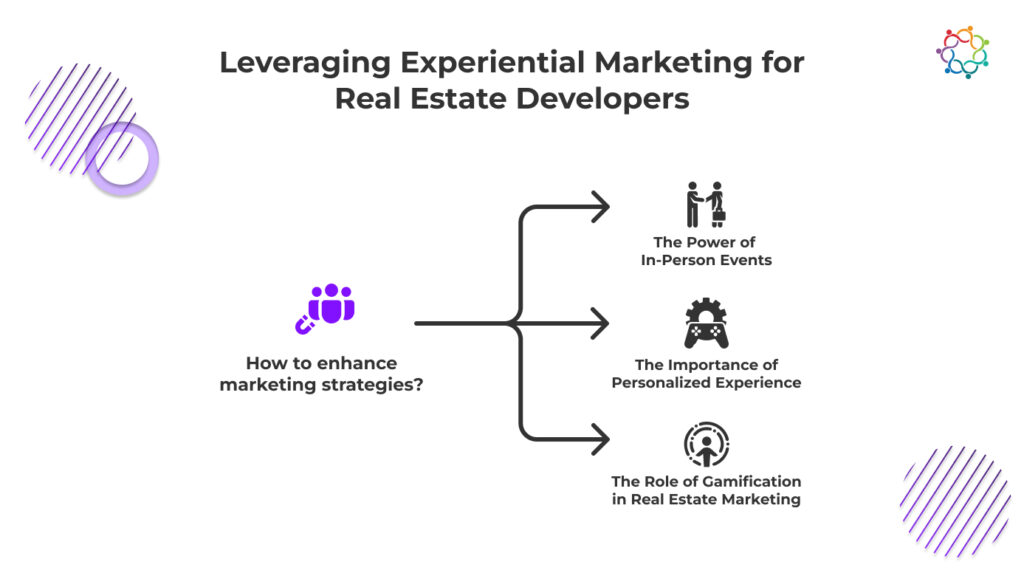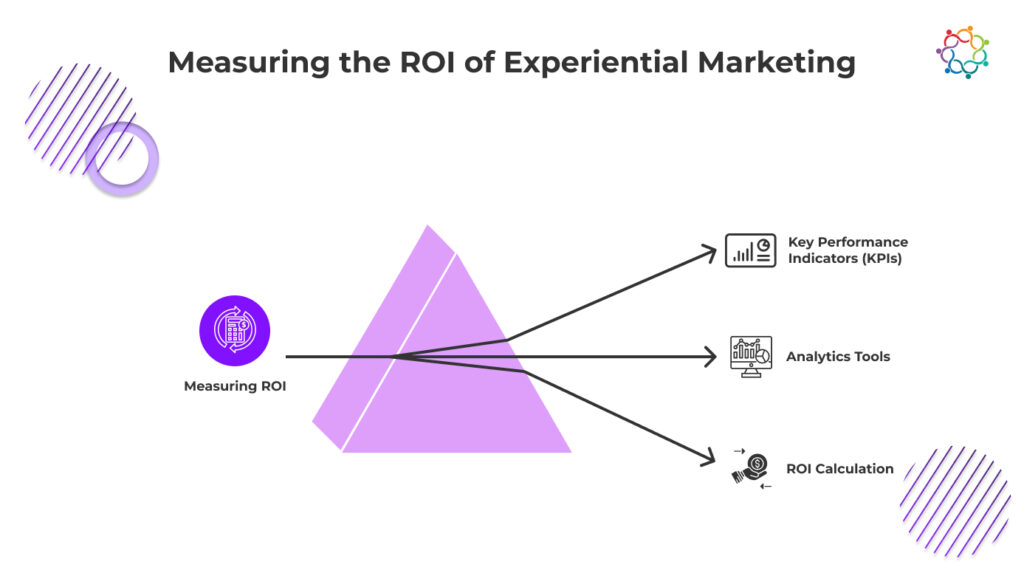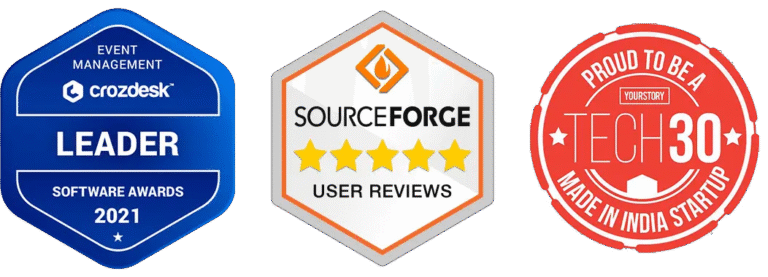Samaaro + Your CRM: Zero Integration Fee for Annual Sign-Ups Until 30 June, 2025
- 00Days
- 00Hrs
- 00Min

In today’s dynamic real estate landscape, marketing strategies have to work harder than ever. With countless listings online and numerous developers competing for the attention of brokers, agents, and potential buyers, simply showcasing a property’s features may no longer be enough. Traditional marketing tactics like brochures, billboards, and static websites often fall short in creating an emotional connection with potential clients.
Experiential marketing is emerging as a transformative approach in real estate marketing, bringing with it the power to create unforgettable, immersive experiences that connect deeply with brokers, agents, and buyers alike. This blog delves into why experiential marketing is likely to become the future of real estate marketing and how developers can use this strategy to build relationships that drive long-term value.
Understanding Experiential Marketing
Experiential marketing is all about creating impactful, memorable experiences. Unlike traditional marketing, which typically focuses on delivering messages to a broad audience, experiential marketing aims to engage clients in interactive and personalized ways. The goal is to build an emotional connection that not only showcases the property but also leaves a lasting impression.
In real estate, this might mean offering property tours, hosting VIP launch events, or even creating pop-up showrooms. Experiential marketing is about fostering a genuine connection by making clients part of the experience rather than just observers.
Leveraging Experiential Marketing for Real Estate Developers

The Power of In-Person Events
In-person events are invaluable in real estate. Whether it’s a luxury launch event or an exclusive viewing, these events can make clients feel valued and provide a tangible sense of the property. From interactive installations to themed spaces that highlight the lifestyle a property offers, events can go far beyond simply presenting specs and pricing.
Using platforms like Samaaro, real estate developers can streamline the entire event process, from planning and promotions to on-site attendee management. These platforms offer easy solutions for managing RSVPs, tracking attendance, and collecting feedback, which allows for a seamless and impactful event experience.
The Importance of Personalized Experiences
Real estate professionals understand that brokers, agents, and clients each have unique needs. Tailoring experiences to meet these specific interests can be a game-changer. Personalized consultations, for instance, provide a chance for agents to discuss potential offerings in detail, catering to specific buyer interests like sustainability, luxury amenities, or community features. Personalization also extends to post-event follow-up, where tailored insights and property details help reinforce connections.
The Role of Gamification in Real Estate Marketing
Gamification—using interactive games or challenges to engage attendees—is an increasingly popular tactic in experiential marketing. For instance, real estate developers could incorporate a property scavenger hunt during open houses, where participants unlock features by visiting different parts of the property. This can incentivize exploration and make the experience memorable.
Gamification doesn’t just add fun; it encourages engagement and learning in a way that’s both effective and enjoyable. This approach not only makes the experience interactive but also reinforces property features that might otherwise be overlooked.
Measuring the ROI of Experiential Marketing

When investing in experiential marketing for real estate, measuring the return on investment (ROI) is essential to understand the campaign’s success and impact. To evaluate ROI effectively, real estate developers should focus on specific key performance indicators (KPIs) that give insights into event success, attendee engagement, and overall brand growth.
Key Performance Indicators (KPIs) for Real Estate Events
Using Analytics Tools to Track Event Performance
To gather and analyze these KPIs effectively, consider utilizing analytics tools within event marketing platforms, such as Samaaro, to capture real-time data and visualize it in reports. These platforms can track attendee engagement metrics, session participation, social media interactions, and more. By consolidating event data into one platform, you can better understand how attendees interacted with the content, which elements were most effective, and where there might be gaps in engagement.
Calculating the Return on Investment (ROI) of Experiential Marketing Campaigns
Finally, calculating ROI requires comparing the event’s costs (venue, materials, staffing, etc.) against the tangible and intangible benefits gained, like leads generated, sales closed, and brand lift. ROI can be calculated using a straightforward formula:
ROI?=?(Net?Profit?From?Event???Event?CostsEvent?Costs)×100ROI?=?Net?Pr?ofit?From?Event???Event?CostsEvent?Costs×100
Analyzing ROI helps real estate developers decide which types of experiential events offer the highest returns and which strategies might need adjustment for future campaigns. This data-driven approach not only strengthens the case for experiential marketing but also allows developers to fine-tune their tactics for maximum impact.
Conclusion
Experiential marketing holds tremendous promise for the future of real estate. By creating meaningful, engaging, and personalized experiences, real estate developers can foster stronger relationships with brokers, agents, and clients alike. High-quality events and immersive experiences are not only memorable but also drive tangible results in terms of brand loyalty and sales.
For real estate professionals ready to explore innovative marketing strategies, now is the time to take the leap. As the real estate market continues to evolve, experiential events will likely play an increasingly crucial role in building brand trust and loyalty.
To discover how Samaaro’s powerful event marketing tools can help bring your vision to life, start a Free Trial or Book a Demo today. The future of real estate marketing is here, and with the right strategies and tools, it’s full of exciting possibilities.

Built for modern marketing teams, Samaaro’s AI-powered event-tech platform helps you run events more efficiently, reduce manual work, engage attendees, capture qualified leads and gain real-time visibility into your events’ performance.
Location


© 2026 — Samaaro. All Rights Reserved.